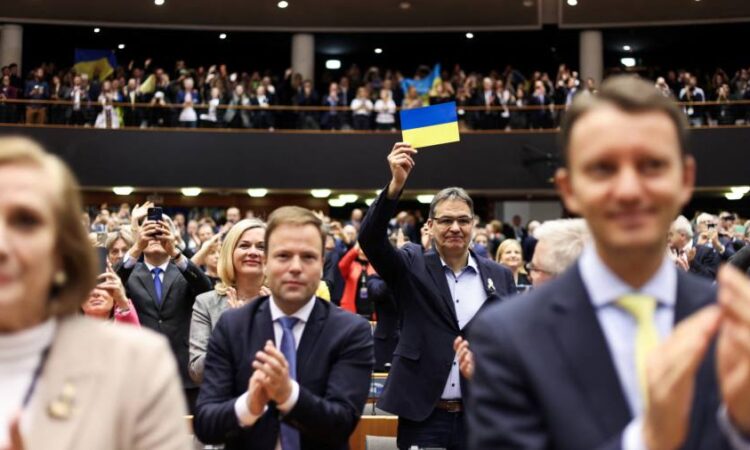
The two-decade history of the EU’s courtship of the western Balkans makes for unhappy reading. First came the hype and hubris of June 2003 when EU and Balkan leaders met at Thessaloniki to hail supposedly a bold new era, declaring the “future of the Balkans is within the EU”.
Then came 20 years of disappointments, lacklustre engagement by Brussels, low ambitions and general cynicism on both sides. “I can’t say things are worse in the region,” says a veteran official from one of the six aspirant Balkan countries. “But they are depressingly the same.”
Slovenia and Croatia did make it into the EU in 2004 and 2013 but their entry processes were already in train. The western Balkans — Serbia, Kosovo, Albania, Bosnia and Herzegovina, Montenegro and North Macedonia — have long been stuck in limbo, each with its own obstacles peculiar to its own fraught and often disputatious politics.
Now, however, after a decade in which enlargement has been something of a dirty word in Brussels, a potentially transformational era has opened. Enlargement is back on the EU agenda. Suddenly, everyone in Brussels is talking about it. This time it is not just a matter of honeyed words.
The change of tack is the latest unintended consequence of Vladimir Putin’s invasion of Ukraine. Binding Ukraine closer to the EU is regarded by Europe’s powers as an essential part of shoring it up against Russia. Its accession would have seismic consequences for the EU, economically and politically.
France, the Netherlands and other members have long been concerned about absorbing new states beyond the current 27 members; democratic backsliding in Poland and Hungary has only reinforced those concerns. Many in Brussels also look back and think Bulgaria and Romania were not really ready for membership when they joined in 2007 in the last big enlargement round.

There also remains a wariness over the long term implications for the EU. Officials highlight that if — and it remains quite a big if — Ukraine actually joins the EU the centre of gravity would tilt to the east and there would be knock-on effects for everyone, including over the budget; Poland, for example, might go from being a net recipient to a net contributor.
But it is now widely anticipated that Ukraine will in due course pass the seven reform tests it was set last year to begin accession negotiations, including cracking down on corruption. One official compares the momentum to an oncoming train. “Even the most cautious accept it. There will be a lot of internal reform work to do to get our own house in order.”
The uncertainties of the battlefield of course complicate Ukraine’s quest. It is hard to see how the EU could endorse membership if a chunk of Ukraine was in a “frozen conflict” — let alone if it was still under Russian bombardment — although there is the precedent of Cyprus.
But Ukraine and its tiny neighbour Moldova, whose application is at the same stage, are pressing relentlessly to meet the criteria, determined to avoid the setbacks of the Balkan aspirants. Their agitation — and successes in moving closer to the EU — are opening up both an opportunity for the Balkan Six and a blueprint approach to follow.
“The situation with Ukraine has created a new urgency and understanding that enlargement is important,” says Milica Delevic, a director at the European Bank of Reconstruction and Development.
“But it also demonstrates that concrete tangible results matter more than the symbolism of small steps.”
Brussels is aware that if it fails to tend its Balkan backyard Moscow might be emboldened to meddle there via its historic ally, Serbia. The violence last week in Kosovo between ethnic Albanians and demonstrators from its Serbian minority, leading to injuries to 30 peacekeepers, underlined such hazards.

EU officials concede it is time for a new approach. “We need to be more honest and we need to be more generous,” says one. “The reforms are painful and the payout is not enough. The Balkans are small and the level of EU ambition is astoundingly low.”
There is no shortage of reasons to put the Balkan bunting on hold. Kosovo has yet to be recognised by several EU states. Bosnia and Herzegovina is riven by acrimony from the 1992-95 war. North Macedonia has long been blocked by one or other EU member, most recently Bulgaria. Serbia, while on paper, with Montenegro, ahead in the queue, harbours deep-seated suspicions of the west.
But it is just possible that almost exactly 20 years after the Thessaloniki Declaration, its florid words are starting to mean something.





